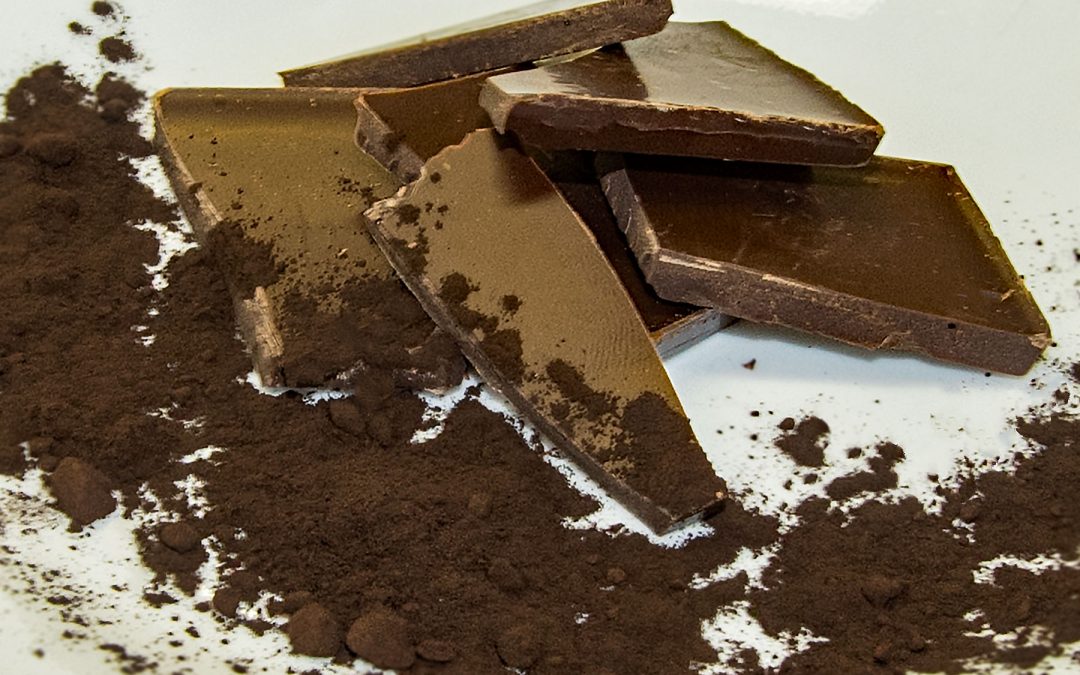Mmm, chocolate. Who doesn’t love the stuff (and those who don’t cannot be trusted, just saying). This food may be as popular as bacon and can be found in kosher and halal groceries as opposed to bacon. I, personally, find it hard to get through the day without consuming this deliciousness and there now seems to be evidence that it is good for you. Yay! I can only hope that there will be research to say that binge-watching television and knitting tiny sweaters with matching toques for my cats are also the keys to a long and prosperous life. One can dream. (Side note: I do not actually knit sweaters and toques for my cats. I am not quite that nuts, yet.)
Chocolate dates back to approximately 2000 BC. The Mayas of Central America were the first connoisseurs of it drinking its bitter fermented liquid mixed with spices and wine. After the “discovery” of the Americas, chocolate made its way through Europe and became a remedy for a number of ailments including emaciation, nervous disorders, and digestive issues.
Cocoa contains more phenolic antioxidants than most foods. Antioxidants are substances that inhibit oxidation and protect the cells from the sometimes damaging effects of this oxidation. Flavonoids such as catechin, epicatechin, and procyanidin in cocoa have anti-inflammatory properties, influence insulin resistance, protect nerves and the skin, and beneficial effects on cognitive function and mood. I certainly can attest to the mood part. It makes me SO happy. Unlike green tea which degrades in antioxidant activity over time, cocoa powder and cocoa beans seem to maintain their stability (in samples) for 75 years. It is also rich in many minerals such as: iron, copper, magnesium, zinc, potassium, and phosphorus.
Let us take a look at the benefits of chocolate one at a time.
• Cardiovascular System– greater improvement in endothelial function (meaning the dilating and constricting of arteries and has an important role in the progression of cardiovascular disease) after consumption of flavanol-rich cocoa. It can improve blood flow and lower blood pressure a little bit although one study showed that people with high blood pressure were unaffected by it. It has also been found that eating chocolate 2 times or more a week lowered the risk of having calcified plaque in the arteries. The trials have not been successful in all test subjects and sometimes the improvements have been small but for me, any reason to eat chocolate is a good reason.
• Lipids- In some studies, cocoa powder was found to significantly decrease oxidized LDL (bad) cholesterol in men and increased HDL (good) in men with elevated cholesterol.
• Insulin- The effects of cocoa on endothelial function also point to an effect on insulin sensitivity because the relationship between this and insulin resistance is a reciprocal one. Increased insulin sensitivity improves endothelial function and vice versa and hence, could reduce the risk of diabetes. It shows more promise with the sustained consumption of cocoa products as opposed to a single dose.
• Skin Protection- The flavanols in chocolate are great for your skin; it helps to protect it against sun damage, improves blood flow to the skin and increases skin density and hydration. Cocoa butter has been used for years topically as a moisturizer. It makes your skin soft and makes you smell like cookies.
• Mood and Brain Function- Chocolate has been found to have a mood elevating effect and improve cognitive function. There are stimulant substances in cocoa such as caffeine and theobromine that may be the reason for the short-term improvement in brain function.
Now, if you are a milk chocolate eater you will not get the same effects as if you were consuming dark chocolate or cocoa. Seventy percent or higher dark chocolate is the best. White chocolate and cocoa butter have the lowest amount of flavanols and consequently would not be as beneficial health wise but they may still make you happy. I think any reason to eat chocolate is reason enough. It might not be bacon but then again bacon has its health drawbacks. Just remember, moderation in all things.
–Janice Willson
References:
https://www.hsph.harvard.edu/nutritionsource/dark-chocolate/
https://www.ncbi.nlm.nih.gov/pmc/articles/PMC4696435/
Photo Source: the author

